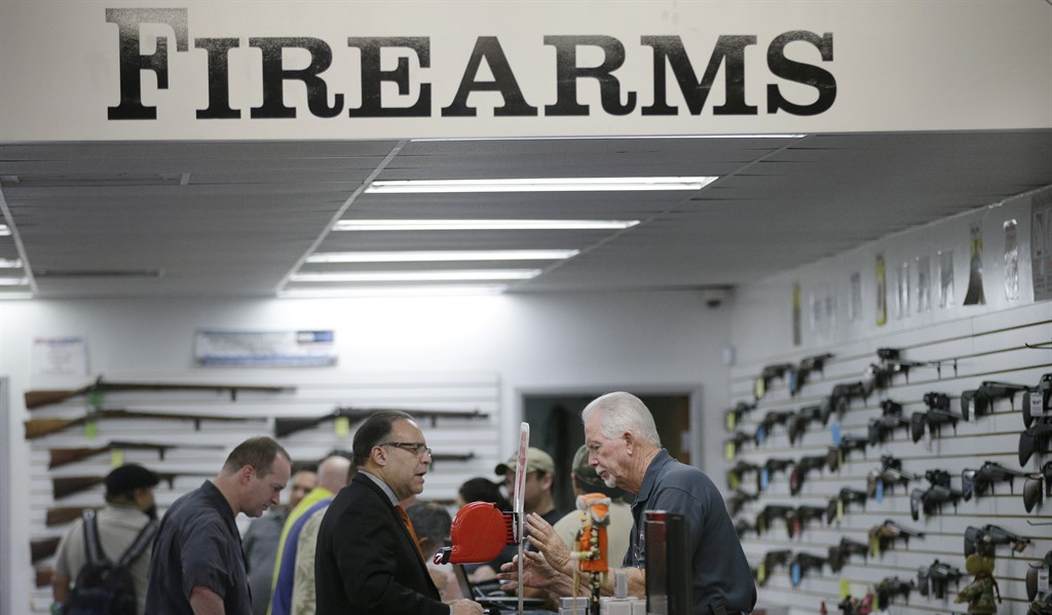There’s an odd quirk about your right to keep and bear arms that doesn’t apply to any of the other rights enshrined in the Constitution: they can be diminished or disappear completely once you cross state lines.
Your First Amendment rights don’t end at the border of your home state. You don’t lose your right to be secure in your person or property when you leave the state where you live. Your Second Amendment rights, however, are another story. You might not be able to lawfully carry your firearm in another state, even though you possess a valid concealed carry license. Heck, you might not even be able to possess a firearm if you travel to another state with more restrictive gun laws. You also can’t buy a handgun in another state without having it shipped to an FFL back home, though you can still purchase long guns.
That last fact is a “loophole” in federal law, according to Colorado congresscritters Joe Neguse and Ed Perlmutter, who have introduced a bill in Congress that would require the NICS system to alert and prohibit out-of-state gun sales to those under the age of 21 if they reside in a state that bars gun purchases for under-21s. The Colorado Democrats say their legislation was inspired by a young woman from Florida who was obsessed with the Columbine shootings, and traveled to Colorado in 2019 about the time of the 20th anniversary of that attack. Unable under state law to purchase a firearm in Florida, she was able to buy a shotgun in Colorado, which she later used to take her own life.
The bill would add the state-level age requirement to the list of prohibitors identified through the National Instant Criminal Background Check System. The woman who traveled to Colorado, later found dead after an extensive search by law enforcement, prompted widespread school closures based on the credible threat she allegedly presented.
“Background checks keep guns out of the hands of people who shouldn’t have them, but they’re only as strong as the weakest link in the system,” said Shannon Watts, founder of the gun safety group Moms Demand Action. “This common-sense bill closes a simple one: if you’re too young to purchase a gun in your home state, a federal background check should catch that and help enforce those laws.”
Never let a tragedy go to waste, Shannon.
Unfortunately for Watts and her allies in the House, our right to keep and bear arms isn’t solely based on the laws of the state where we live. It’s protected by the Bill of Rights itself, and as the Fourth Circuit recently ruled, the federal law banning the sale of handguns to those under the age of 21 violates the Second Amendment rights of young adults.
“When do constitutional rights vest? At 18 or 21? 16 or 25? Why not 13 or 33?” Circuit Judge Julius Richardson asked at the beginning of the 88-page opinion.
The Richmond-based appeals court’s 2-1 majority ruled on Tuesday that the 1968 law barring people under the age of 21 from purchasing handguns from licensed dealers is unconstitutional.
Answering his own question, Richardson said that 18-to-20-year-olds are protected under the Second Amendment.
“In the law, a line must sometimes be drawn. But there must be a reason why constitutional rights cannot be enjoyed until a certain age,” wrote the Donald Trump appointee, adding “Our nation’s most cherished constitutional rights vest no later than 18. And the Second Amendment’s right to keep and bear arms is no different.”
The decision arises from a challenge by Natalia Marshall, a young woman who wanted to buy a handgun to protect herself from her abusive ex-boyfriend and to defend her rural home.
Some young adults may indeed want a firearm for an unlawful purpose, either criminal activity or, as in the case of the young woman from Florida, to take their own life. Most young adults who want a firearm, on the other hand, desire one for the lawful purpose of self-defense, hunting, recreational shooting, or simply because they want to exercise their right to own a gun.
There are only a few states like Florida that impose an outright ban on gun purchases for those younger than 21, but the federal law barring under-21s from lawfully purchasing a handgun at retail applies in all 50 states. The bill introduced this week by Neguse and Perlmutter would become utterly moot if the Supreme Court were to uphold the Fourth Circuit’s decision, but I doubt that there’s enough support in Congress for it to become law in the first place. Oh sure, it could squeak out of the House by a slim margin, but I don’t see ten Republicans (or all 50 Democrats, for that matter) signing on to a bill that explicitly strips under-21s of their Second Amendment rights.
We’ll see what happens with that Fourth Circuit case, because there is an interesting twist that the Supreme Court may have to deal with: what happens once the plaintiff reaches the age of 21 and she’s now able to purchase a handgun? As Judge Richardson noted in the Fourth Circuit’s recent decision, the courts cannot punt away every legal challenge to an under-21 gun ban simply because the court system doesn’t work fast enough to resolve a case before an 18 year-old turns 21 and an individual challenge becomes moot, but that’s been an easy out for the judicial system in previous challenges. Let’s hope that when the case involving Natalia Marshall reaches SCOTUS, we have at least four justices willing to take the case even if Marshall’s now old enough to buy any firearm she wants to protect herself from her abusive ex.









